Today, September 20, we celebrate the feast of the 103 Martyrs of Korea, men women and children who risked and gave their lives in defense of the faith of the Church. The spread of Christianity throughout Asia was not without it’s share of blood and persecution. All these gave their lives, as Saint Agatha Yi said, “for the Lord of Heaven, whom we will always serve.” We have previously read about the Martyrs of China and Japan (here and here), and the growth of Christianity in Korea is no exception to this difficult history. However, Korea is unique in the manner in which Christianity originated and spread.
Long a closed country, the scholars of Korea were eager to learn about the world, and after the discovery of some Christian books obtained from Korea’s embassy to the Chinese capital, developed an interest in the theology and philosophy of the faith. Ni-seung-houn, a Korean native, traveled to Beijing in 1784 to study Catholicism and was baptized with the new name, Peter Ri. Upon returning to Korea, he converted many, but several years later, the martyrdom of Christians began. In 1791, the government declared that Christians were “foreign traitors,” and two of Peter Ri’s recent converts were martyred: Paul Youn and Jacques Kuen.
This was not the end of the faith in Korea, but only the beginning. As in many cases, the persecution of the faithful only fanned the flames of religious conviction. In 1794, Father James Tsiou, a Chinese priest, entered Korea. Upon his arrival, he found four thousand Catholics living in fear and practicing in secret, never having seen or interacted with a priest! Father Tsiou worked in Korea for seven years, after which he was slain by authorities.
Only three decades later, the Prefecture Apostolic of Korea was established by Pope Leo XII, after he received a letter smuggled out of Korea by faithful Catholics. In 1836, Monsignor Lawrence Imbert smuggled himself into Korea to continue the work of the Lord. Soon after, others arrived, and they worked until 1839, when a full persecution started. First, three European priests were martyred, followed by native Korean Catholics. This did not stop the training and faith of the congregations established, however. Young Korean candidates for the priesthood were sent to Macao for ordination, a both risky and difficult process.
The first native priest, Andrew Kim Taegon, returned to Korea in 1845 and was martyred the following year with his lay apostle, Paul Chong Hasang. The son of Korean converts, Father Andrew’s father, Ignatius Kim, was martyred during the persecution of 1839 and was beatified in 1925. After Baptism at the age of 15, Andrew traveled 1,300 miles to the seminary in Macao, China, returning six years later through Manchuria. That same year he crossed the Yellow Sea to Shanghai and was ordained a priest. Back home again, he was assigned to arrange for more missionaries to enter by a water route that would elude the border patrol. He was arrested, tortured and finally beheaded at the Han River near Seoul, the capital. His last words, to his torturers, were:
“This is my last hour of life, listen to me attentively: if I have held communication with foreigners, it has been for my religion and for my God. It is for Him that I die. My immortal life is on the point of beginning. Become Christians if you wish to be happy after death, because God has eternal chastisements in store for those who have refused to know Him.”
While awaiting death, Father Andrew wrote a number of letters to his congregation. This is excerpted from the last letter smuggled out of prison:
"My dear brothers and sisters, know this: Our Lord Jesus Christ upon descending into the world took innumerable pains upon and constituted the holy Church through his own passion and increases it through the passion of its faithful....
Now, however, some fifty or sixty years since the holy Church entered into our Korea, the faithful suffer persecutions again. Even today persecution rages, so that many of our friends of the same faith, among whom I am myself, have been thrown into prison. just as you also remain in the midst of persecution. Since we have formed one body, how can we not be saddened in our innermost hearts? How can we not experience the pain of separation in our human faculties?
However, as Scripture says, God cares for the least hair of our heads, and indeed he cares with his omniscience; therefore, how can persecution be considered as anything other than the command of God, or his prize, or precisely his punishment?...
We are twenty here, and thanks be to God all are still well. If anyone is killed, I beg you not to forget his family. I have many more things to say, but how can I express them with pen and paper? I make an end to this letter. Since we are now close to the struggle, I pray you to walk in faith, so that when you have finally entered into Heaven, we may greet one another. I leave you my kiss of love.”
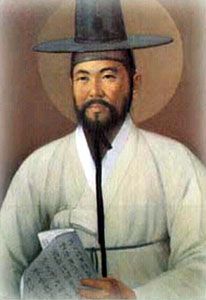 Paul Chong Hasang was a seminarian. He was 45 years old, and a lay apostle of Saint Andrew Kim Taegon. As a layman, Paul was one of the great founders of the Catholic Church in Korea. He was persecuted before he could be ordained. Paul was captured and gave the judge a written thesis defending Catholicism. The judge, after reading it, said, “You are right in what you have written; but the king forbids this religion, it is your duty to renounce it.”
Paul Chong Hasang was a seminarian. He was 45 years old, and a lay apostle of Saint Andrew Kim Taegon. As a layman, Paul was one of the great founders of the Catholic Church in Korea. He was persecuted before he could be ordained. Paul was captured and gave the judge a written thesis defending Catholicism. The judge, after reading it, said, “You are right in what you have written; but the king forbids this religion, it is your duty to renounce it.”Hasang replied, “I have told you that I am a Christian, and will be one until my death.”
After this Hasang endured a series of tortures but with remarkable serenity. He was thereafter bound to a cross on a cart and went to his death, at the age of 45, with extraordinary good cheer.
Severe persecution followed, and Catholics fled to the mountains, still spreading the faith. In 1864, a new persecution claimed the lives of two bishops, six French missionaries, another Korean priest, and eight thousand Korean Catholics (men and women, married and unmarried, children, young people, and the elderly). Among the martyrs was Columba Kim, an unmarried woman of 26. She was put in prison, pierced with hot tools and seared with burning coals. She and her sister Agnes were disrobed and kept for two days in a cell with condemned criminals, but were not molested. After Columba complained about the indignity, no more women were subjected to it. The two were beheaded. A boy of 13, Peter Ryou, had his flesh so badly torn that he could pull off pieces and throw them at the judges. He was killed by strangulation. Protase Chong, a 41-year-old noble, apostatized under torture and was freed. Later he came back, confessed his faith and was tortured to death.
Religious freedom was granted to Koreans in 1883, and today, nearly 4.7 million Catholics practice throughout the country. The Korean martyrs of 1839, 1846, and 1867 were canonized in Korea in 1984 by Pope John Paul II. During his Homily of Canonization, the Holy Father said:
"The Korean Church is unique because it was founded entirely by lay people. This fledgling Church, so young and yet so strong in faith, withstood wave after wave of fierce persecution. Thus, in less than a century, it could boast of 10,000 martyrs. The death of these martyrs became the leaven of the Church and led to today's splendid flowering of the Church in Korea. Even today their undying spirit sustains the Christians in the Church of silence in the north of this tragically divided land."
The 103 Martyrs of Korea:
Agatha Chon Kyonghyob
Agatha Kim
Agatha Kwon Chini
Agatha Yi Kannan
Agatha Yi Kyong-i
Agatha Yi Sosa
Agatha Yi
Andrew Kim Taegon
Cecilia Yu
Jung Hye
Paul Chong Hasang
Agnes Kim Hyoju
Alex U Seyong
Andrew-Chong Kwagyong (catechist)
Anna Kim
Anna Pak A-gi
Anna Pak Agi
Anthony Daveluy (bishop)
Anthony Kim Son-u
Augustine Pak Chong-won
Augustine Yi Chin-gil
Augustine Yi Kwang-hon
Barbara Ch'oe Yong-i
Barbara Cho Chung-i
Barbara Han Agi
Barbara Kim
Barbara Ko Suni
Barbara Kwon Hui
Barbara Yi Chong-hui
Barbara Yi
Bartholomew Chong Munho
Benedicta Hyon Kyongnyon
Catherine Chong Ch'oryom
Catherine Yi
Charles Cho Shin-ch'ol
Charles Hyon Songmun
Columba Kim Hyo-im
Columba Kim
Damianus Nam Myong-hyog (catechist)
Damien Nam Myong-hyok
Elisabeth Chong Chong-hye (virgin)
Francis Ch'oe Hyong-hwan
Ignatius Kim Chejun (catechist)
Jacob Chastan (priest)
John Baptist Chong Chang-un (catechist)
John Baptist Nam Chongsam
John Baptist Yi Kwangnyol (catechist)
John Nam Chong-sam
John Pak
John Yi Kwong-hai
John Yi Munu
John Yi Yunil (catechist)
Joseph Chang Chugi (priest)
Joseph Chang Songjib
Joseph Cho Yunho
Joseph Im Ch'ibaeg
Joseph Peter Han Wonso (catechist)
Juliet Kim (virgin)
Justin de Bretenières (priest)
Lawrence Han Ihyong (catechist)
Lawrence Imbert (bishop)
Lucia Kim
Lucia Park Huisun
Ludovicus Beaulieu (priest)
Luke Hwang Soktu
Magalena Ho Kye-im
Magdalene Cho
Magdalene Han Yong-i
Magdalene Kim Obi
Magdalene Pak Pongson (widow)
Magdalene Son Sobyog
Magdalene Yi Yong-hui
Magdalene Yi Yongdog
Maria Park K'unagi
Maria Won Kwi-im (virgin)
Maria Yi Indog
Maria Yi Yonhui
Mark Chong Uibae (catechist)
Martha Kim
Martin Luke Huin (priest)
Mary Yi Yon-hui
Paul Ho
Paul Hong Yongju (catechist)
Perpetua Hong Kumju (widow)
Peter Aumaitre (priest)
Peter Ch'oe Ch'ang-hub (catechist)
Peter Ch'oe Hyong (catechist)
Peter Cho Kwaso
Peter Chong Wonji
Peter Henricus Dorie (priest)
Peter Hong Pyongju
Peter Kwon Tugin
Peter Maubant (priest MEP)
Peter Nam Kyongmun (catechist)
Peter Ryau
Peter Son Sonji (catechist)
Peter Y Taech'ol
Peter Yi Hoyong
Peter Yi Myongs
Peter Yu Chongyul (catechist)
Peter Yu Tae-Chol
Protasius Chong Kurbo
Rosa Kim (widow)
Sebastian Nam
Simon Berneux (bishop)
Stephen Min Kukka (catechist)
Susanna U Surim
Teresa Kim Imi
Teresa Kim
Teresa Yi Mae-im
Thomas Son Chason
Inspired by the origins and spiritual history of the Holy Rosary, we continue our meditation on the psalms, one each day, in order, for 150 days.
Psalm: Psalm 148: Hymn of All Creation to the Almighty Creator
1 Praise the LORD.
Praise the LORD from the heavens,
praise him in the heights above.
2 Praise him, all his angels,
praise him, all his heavenly hosts.
3 Praise him, sun and moon,
praise him, all you shining stars.
4 Praise him, you highest heavens
and you waters above the skies.
5 Let them praise the name of the LORD,
for he commanded and they were created.
6 He set them in place for ever and ever;
he gave a decree that will never pass away.
7 Praise the LORD from the earth,
you great sea creatures and all ocean depths,
8 lightning and hail, snow and clouds,
stormy winds that do his bidding,
9 you mountains and all hills,
fruit trees and all cedars,
10 wild animals and all cattle,
small creatures and flying birds,
11 kings of the earth and all nations,
you princes and all rulers on earth,
12 young men and maidens,
old men and children.
13 Let them praise the name of the LORD,
for his name alone is exalted;
his splendor is above the earth and the heavens.
14 He has raised up for his people a horn,
the praise of all his saints,
of Israel, the people close to his heart.
Praise the LORD.
Day 262 of 365
Prayer Intentions: Conviction and Courage in living our Faith.
Requested Intentions: Restoration of a relationship (H); For successful employment (I); For a daughter’s successful relationship (M); For a relationship sanctified by God (M); For health of father; For canonization of Pope John Paul II (A); For the conversion of a family (L); For the ill (A); For the health of a family (I); For a father’s successful surgery and recovery (G); For those who are ill, and their caretakers (D); For the safety of a sister who is traveling (A); Recovery of mother with cancer (R); Successful acquisition of a visa (T); Restoration of a marriage (A); For employment and health of mother (G); Successful employment (M); Restoration of a family, End to brother's addiction, Successful marriage (R); Employment (I); Successful recovery of a mother; for all stroke victims (D); Successful return to the faith (A); Emotional, physical, and financial healing (D); Diagnosis and recovery (A); For a successful relationship (J); Those suffering from depression (J); Successful adoption (S); Healing of a father battling cancer (S).
Psalm: Psalm 148: Hymn of All Creation to the Almighty Creator







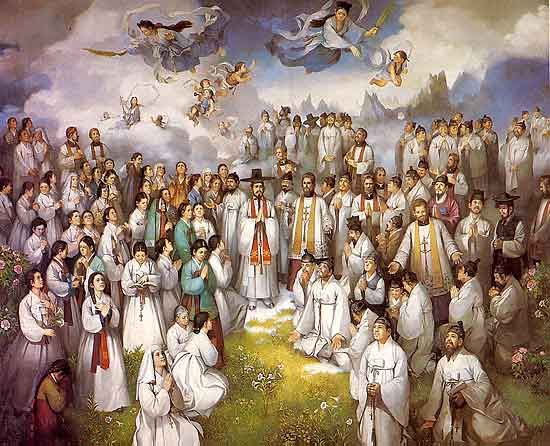
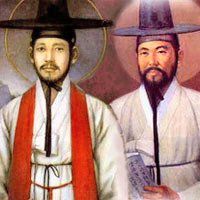
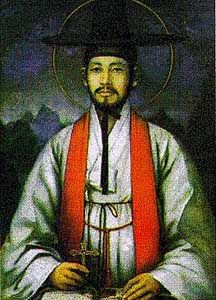

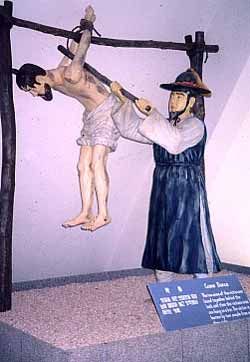
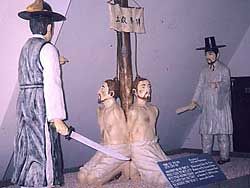
0 comments:
Post a Comment
Thanks for leaving a comment. If you wish to submit a prayer request, however, please do so above, using the "Contact" tab.